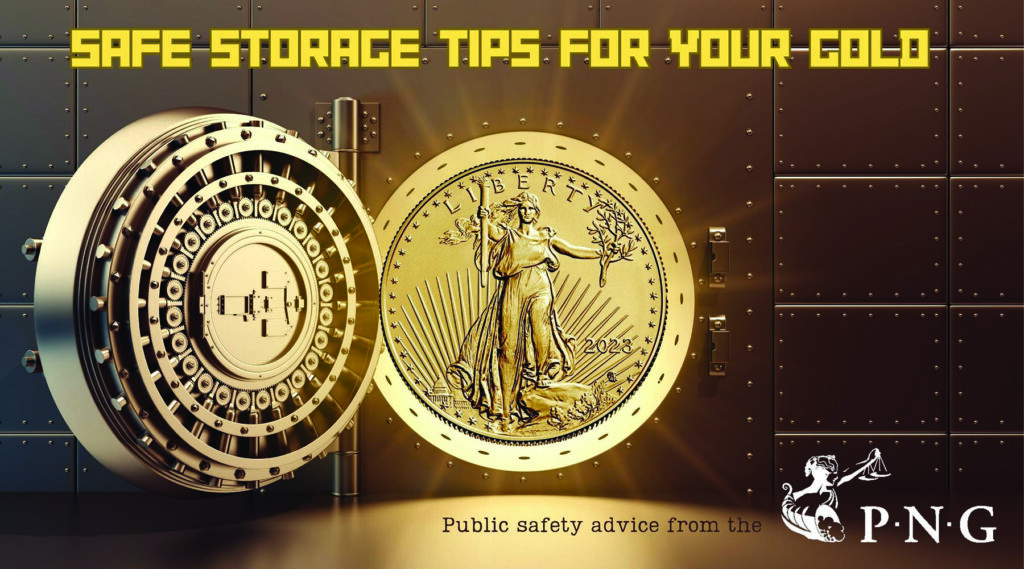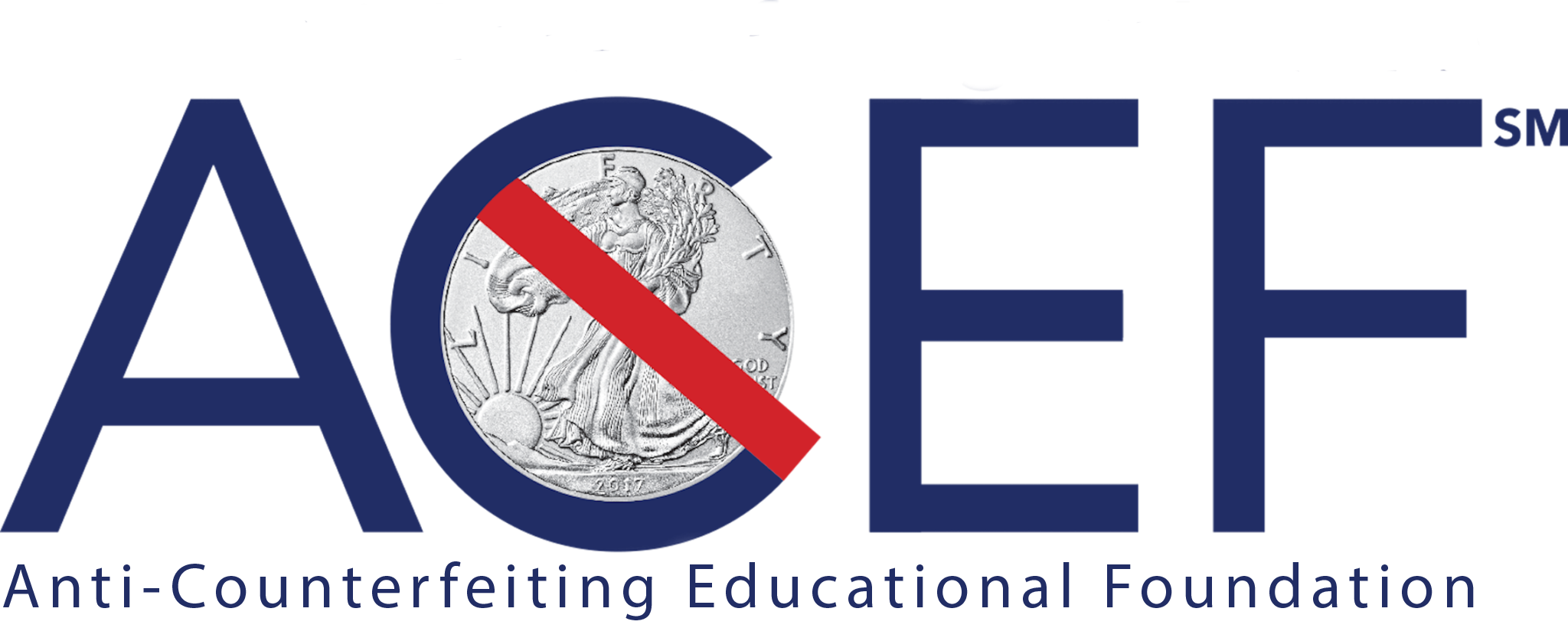There are pros and cons when considering a home safe, bank deposit box, or a bullion depository.
.

(Temecula, California) July 5, 2023 – During the “Gold Rush of 2023,” dealers report that demand for gold bullion coins has soared from both previous investors and many new buyers. Now the important question is: how should you safely protect and store your precious metal purchases?
The Professional Numismatists Guild (www.PNGdealers.org), a nonprofit organization composed of many of the country’s top rare coin and precious metals dealers, advises that the three most popular methods of storage each have advantages and disadvantages.
“The secure storage methods usually considered by investors are a home safe, a safe deposit box at a bank or other financial institution, and/or a third-party bullion depository. Buyers of rare coins or gold, silver or platinum bullion coins or ingots should carefully consider which approach is best for them,” said PNG President Wayde Milas.
Here are comments from some PNG member-dealers about the pros and cons of different types of secure storage.
Home Safe – Pro:
Warren Mills of Rare Coins of New Hampshire in Milford, New Hampshire, disagrees about bank deposit boxes. “I always recommend home safe. If there’s a bank holiday, there goes your access. An insured home safe is the best option. Many homeowner policies offer up to a certain amount of a coverage rider at no premium or a reduced premium, and you can also obtain private insurance for a home safe.”
Mills also suggests installing a “dummy” safe visible in a bedroom closet “so your house doesn’t get wrecked if unfriendly people break in. A heavy. dummy safe lets them think they got the goods.”
“I recommend getting a safe with a minimum rating of Class C; which provides at least 1 hour of tool resistance. Always with the caveat that although it’s your option, I discourage buying a gun safe. They can look fancy and strong, but are generally rated A or B and do not provide the tool resistance of a Class C safe. Furthermore, insurance for bullion is not covered under your regular homeowner’s policy. A rider has to be purchased which can run thousands annually,” says Diane P Rapanotti of The Roamin’ Roman in Cabot, Arizona.
John Maben of Pegasus Coin & Jewelry in Bradenton, Florida is adamant: “I advise against any third-party storage and/or bank safe deposit boxes. You should be able to get your coins and precious metals quickly and easily. Only you and one other trusted person should know where they are kept. I suggest TL15 or TL30-rated safes or a highly concealed wall or floor safe.”
Maben adds: “Very wealthy people often have secret rooms in their house as well. Relinquishing any control of your coins and bullion is counter to the purpose of owning them.”
Home Safe – Con:
Tom Caldwell of Northeast Numismatics in Concord, Massachusetts cautions, “No home safe is completely safe from theft. If the bad guys want them bad enough, they will find a way. If home storage is done make sure you have coverage on your home owner’s policy or if this is exceeded get a rider on it.”
“I would not keep everything in a home safe. Home safes can get blown away by tornadoes or hurricanes, and bad guys may tie you up and threaten or beat you and your family until you disclose the combination. Only leave a small number of items in a home safe,” warns Michael Fuljenz, president of Universal Coin & Bullion in Beaumont, Texas.
“If kept at home, items should be well hidden and do not tell anyone about them. An alarm system is recommended,” suggests Leidman.
Safe Deposit Box – Pro:
“The best storage method would be a safe deposit box in a bank or appropriate facility that has the same kind of security as a bank,” says PNG member Julian Leidman of Bonanza Coins in Silver Spring, Maryland.
“The only risk-free method is safe deposit boxes. Every other storage option has risks,” believes Caldwell. “The minor inconvenience of not having access to your coins to look at and enjoy when banks are closed is far offset by the added security of a safe deposit box.”
Rapanotti points out that bank deposit boxes are a relatively low cost, low risk option for protection. “Many commercial coin and jewelry insurers give large discounts on their annual premiums if the bulk of the inventory is kept in a safe deposit box,” she explains.
“I’ve never personally known of anyone losing coins stored in a safe deposit box, but keep mum about the bank box and don’t be predictable about visits to the bank,” cautions Fuljenz. “Large safes are usually too heavy for thieves to carry, and also you should bolt the safe to the floor in an out-of-the-way location; not the master bedroom or bathroom because those are the first places thieves look.”
Safe Deposit Box – Con:
“The drawback is a bank safe deposit box is generally not available weekends or holidays,” says Rapanotti.
“Storing your rare coins or bullion coins in a bank is not convenient to view and enjoy your collection, so the option is to take images of the items so you can view them anytime,” Caldwell suggests.
Bullion Depository – Pro:
Twenty-four hour, seven-days-a-week on-site security and surveillance may provide peace of mind about keeping your valuables in this type of third-party storage.
Bullion Depository – Con:
Caldwell says based on several bullion depository events of recent years “with third-party depositories there may be a chance of them going bad and you may be out of luck.”
“I never recommend third-party (depository) storage unless it is a qualified IRA account. The annual costs are high. Generally, your items are not immediately accessible due to documentation and signatory requirements,” says Rapanotti.
Probably the worst place to store your bullion or rare coins is to bury them in the backyard. “Plastic tube containers and metal or wood boxes can leak over time resulting in environmental damage to the coins, and there are other risks with having valuables easily retrievable outside a locked and alarmed house,” says Fuljenz.
Members of the Professional Numismatists Guild and its Accredited Precious Metals Dealer program (www.APMDdealers.org) must adhere to a strict Code of Ethics (www.PNGdealers.org/code-of-ethics) in the buying and selling of numismatic merchandise.
For additional information about the PNG, visit www.PNGdealers.org or email info@PNGdealers.org.
